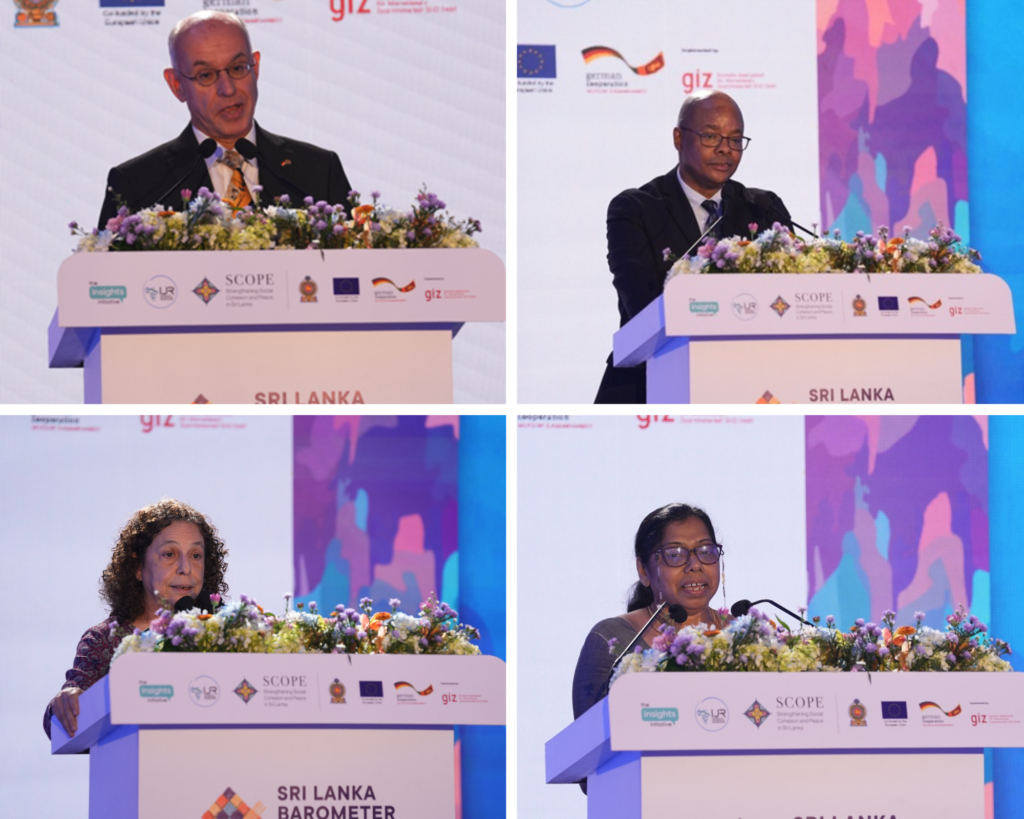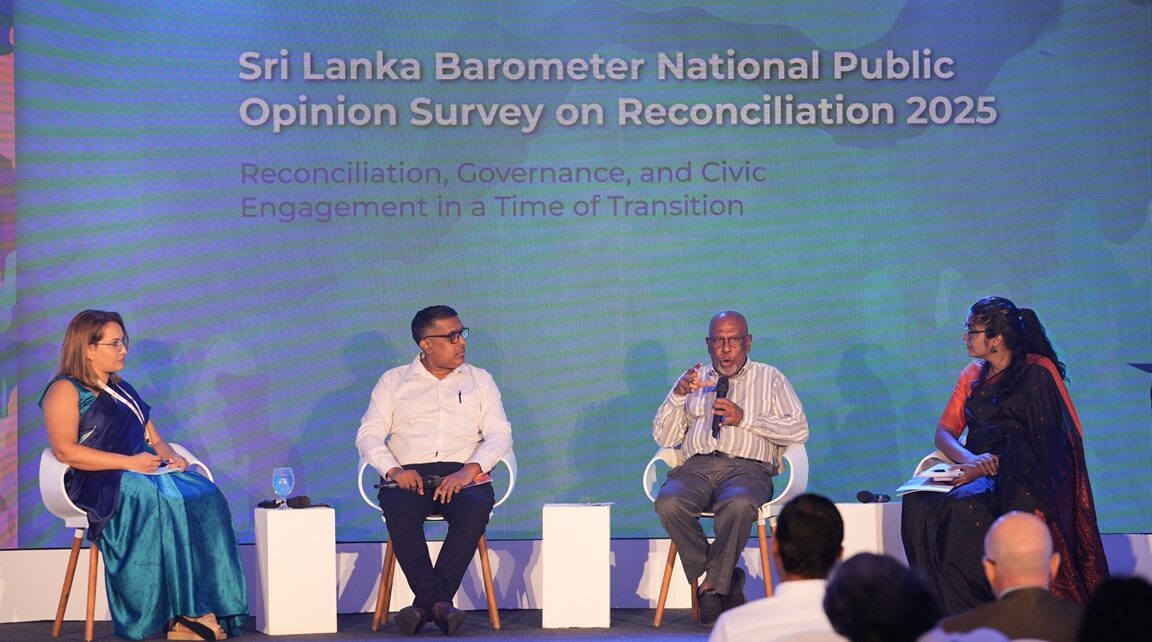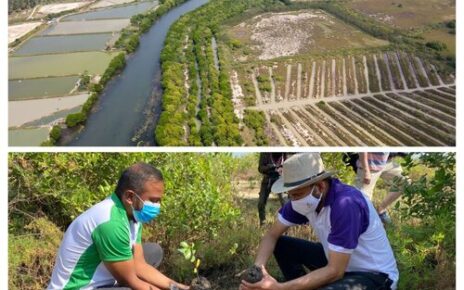The 2025 Sri Lanka Barometer (SLB) Survey Report was officially launched at the Taj Samudra Hotel, Colombo. Administered every two years, this nationally representative public opinion survey tracks public sentiment on key issues such as post-conflict reconciliation, governance, and civic engagement over time.
The overarching objective of the SLB is to inform public discourse and policymaking in the country’s pursuit of greater unity and inclusion. It is supported by the Strengthening Social Cohesion and Peace in Sri Lanka (SCOPE) program, which is co-funded by the European Union and the German Federal Foreign Office, and implemented by GIZ in partnership with the Government of Sri Lanka.
The 2025 SLB Survey Report, presented at today’s event, captures how Sri Lankans perceive reconciliation amid the 2024/2025 political transition. It captures both renewed political trust and civic engagement, alongside concerns about institutional responsiveness. While many findings reveal citizen aspirations for change, their perceptions of actual progress remain limited and uneven, shaped by diverse lived experiences. The report highlights that reconciliation is not a fixed outcome but an ongoing process – dependent on credible, inclusive, and sustained action by relevant stakeholders.
The high-level launch brought together stakeholders from government, civil society, academia, media, and the diplomatic community. Distinguished guests included: Hon. Muneer Mulaffer, Deputy Minister of Religious and Cultural Affairs; H.E. Carmen Moreno, Ambassador of the European Union to Sri Lanka and the Maldives; H.E. Dr. Felix Neumann, Ambassador of the Federal Republic of Germany to Sri Lanka and the Maldives; H.E. Sandile Edwin Schalk, High Commissioner of South Africa.

“The Sri Lanka Barometer provides essential insights into how citizens across the country view reconciliation and governance,” said Ambassador Moreno. “The EU is proud to support efforts that place the voices of the people at the center of national dialogue.”
Ambassador Neumann noted, “This report shows that Sri Lankans are increasingly aware of their rights and responsibilities as citizens. Understanding these perspectives is key to building trust and advancing sustainable peace. Germany is especially grateful to foster with the Sri Lanka Barometer a tool not just for analysis, but for action.”
To increase accessibility and public engagement, the SLB also launched a new Online Data Analysis Tool, an interactive platform that provides public access to survey results across all four iterations (2020, 2021, 2023 and 2025), enabling researchers, journalists, policymakers, and citizens to explore the data further.
In a major step towards institutional sustainability, the event also introduced The Insights Initiative, a newly established research organization created to carry the SLB forward. The initiative will oversee the continued development of the SLB, with a focus on strengthening local ownership, research capacity, and the use of data for public discourse and inclusive policymaking. It also aims to serve as a hub for collaboration between academics, civil society organizations, and public institutions committed to evidence-based governance, reconciliation, and social cohesion.
Image Caption
After a presentation on key findings by Dr. Natasha Palansuriya, Lead Researcher for the Sri Lanka Barometer, discussants M. A. Mohamed Munas (Centre for Poverty Analysis) and Prof. Kalinga Tudor Silva (Emeritus Professor, University of Peradeniya) shared their insights in a Q&A session facilitated by Ms. Aaranya Rajasingam of SCOPE.


